Test Prep and the War
Preparing high schoolers for the Regents exam while studying the War in Iraq.
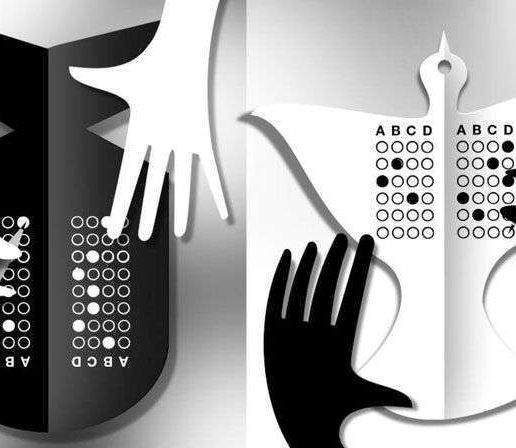
Preparing high schoolers for the Regents exam while studying the War in Iraq.
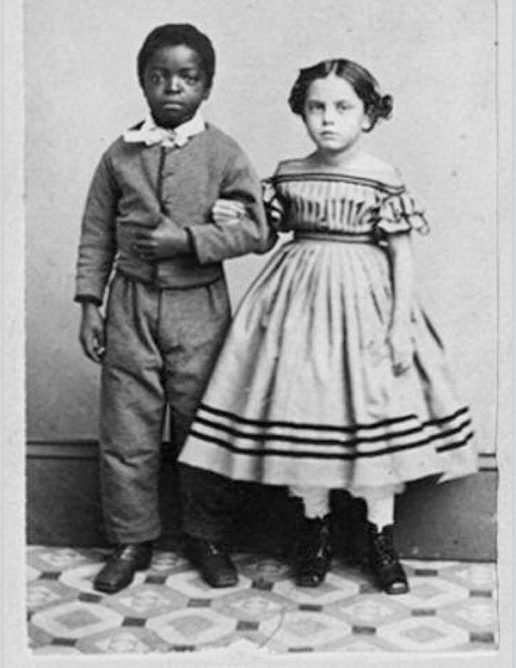
This content is restricted to subscribers

Helping kids who’ve grown up in the truck culture” examine climate change.
“

This content is restricted to subscribers

This content is restricted to subscribers
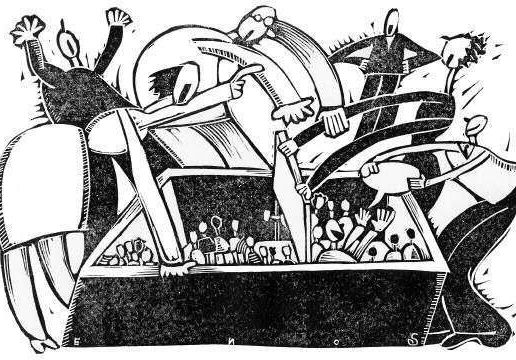
A teacher finds that small school reform presents opportunities to teach about tracking and inequality.
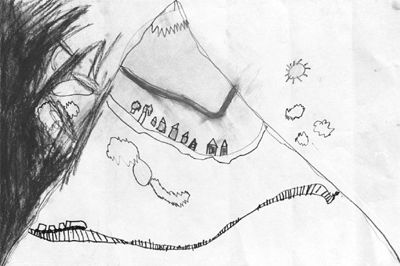
This content is restricted to subscribers

An ordinary spider assists a multilingual third-grade classroom.
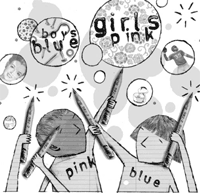
A unit on gender stereotypes inspires students to take action.
Teaching forgiveness through poetry and art.

A Rethinking Schools editor explores the environment’s effects on her students’ health in the classroom.

A 3rd-grade teacher uses thousands of pieces of macaroni to facilitate a lesson about fractions and to spur classroom conversations about wealth inequality.
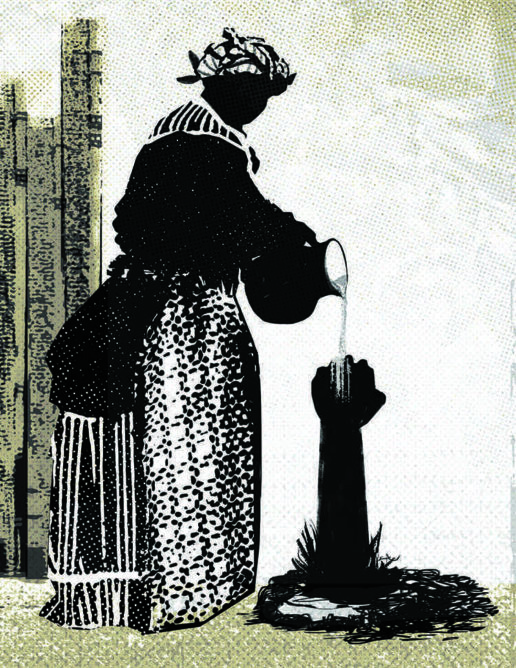
Unfortunately, the transformative history of Reconstruction has been buried. First by a racist tale masquerading as history and now under a top-down narrative focused on white elites. It’s long overdue we unearth the groundswell of activity that brought down the slavers of the South and set a new standard for freedom we are still struggling to achieve today.

A high school teacher looks at how a daily activity focusing on the representation of women helped transform her classroom.
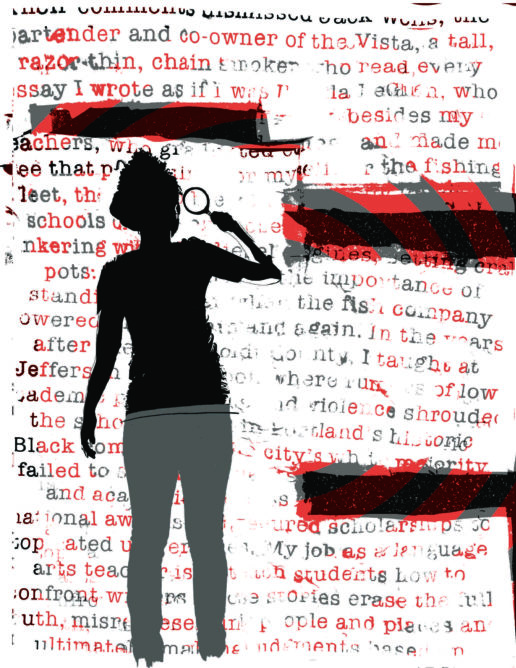
“Part of the work of teaching students to read is teaching them to question not only the written word, but also the author,” Christensen writes in her article about teaching students how to confront writers whose stories erase the full truth and misrepresent people and places.
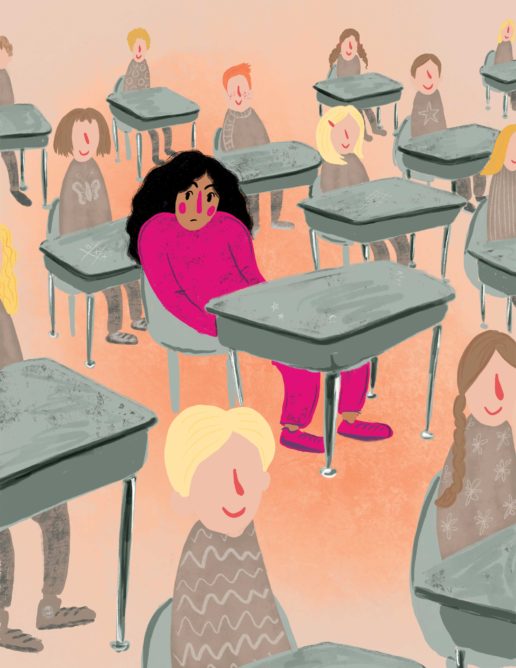
A Palestinian American mother describes the alienation that she felt in school, and how she draws on her experiences to imagine the schooling she wants for her children.
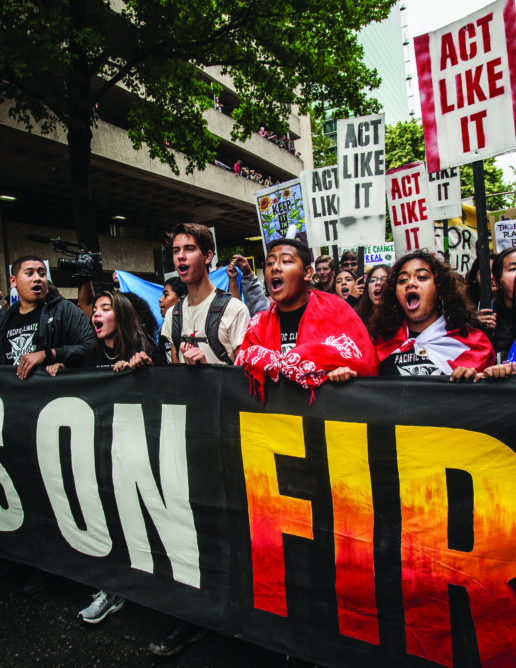
“Climate justice” education means a lot of things. But one key aspect is that we involve students in probing the social and economic roots of the crisis.
In the spring 2011 issue of Rethinking Schools we editorialized about the immense gulf between our terrible environmental crisis — especially the climate crisis — and the adequacy of schools’ curricular response. Seven years later, we still see this gap between crisis and curriculum — which is why we are launching this regular “Earth, Justice, and Our Classrooms” column: to offer encouragement and resources for teachers to help students explore the roots and consequences of the crisis and figure out how to respond.
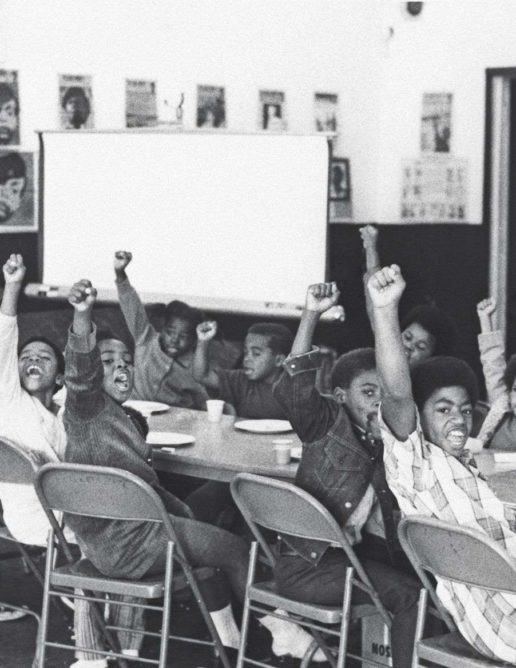
The history of the Black Panther Party holds vital lessons for today’s movement for Black lives and all movements to confront racism, inequality, and police violence. But our textbooks distort the significance of the Panthers — or exclude them completely.

An elementary school teacher uses his students’ T-shirts to launch a lesson about child labor, basic economics, factories, unions, and strikes. “When I was a child, I remember ‘playing pretend’ with my cousins. We could be anyone we imagined, and in that moment, we were those people. Why not use that energy and imagination as a resource? When we use our imagination to walk in another’s shoes, that’s where real learning begins.”

An elementary teacher tells how she works to include her Muslim students in the life of her classroom. “We can use or create curriculum and projects that allow students to learn about and incorporate their culture and religious practices if they want to. We can be deliberate in including, making space for, and recognizing our students in all aspects of their identities. Making schools inclusive doesn’t have to be a guessing game.”

A high school teacher critiques the textbook treatment of the Cold War and U.S. imperialism. She describes her approach to the “curricular conundrum” that the Cold War presents because it lasted so long, and was so far-flung. “”If we are ever to create a different world, one in which the United States does not cast an outsized and militarized shadow across the globe, we need our students to understand how and why that shadow was created in the first place.”
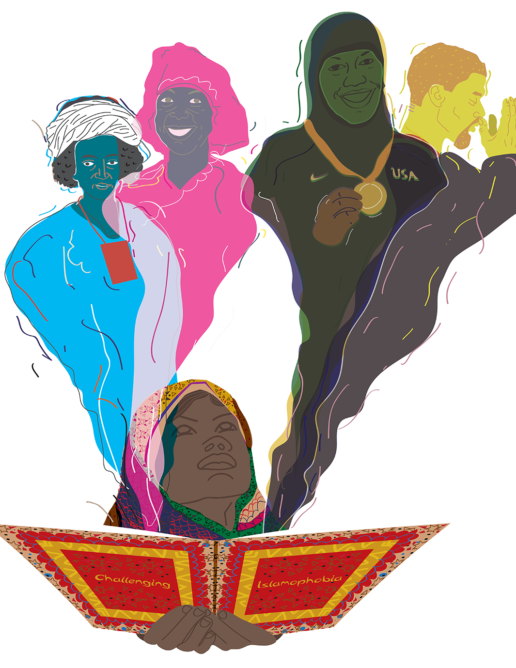
The increasing violence against Muslims, Sikhs, South Asians, and others targeted as Muslim, suggests we, as Americans, are becoming less tolerant and need educational interventions that move beyond post-9/11 teaching strategies that emphasize our peacefulness or oversimplify our histories, beliefs, and rituals in ways that often lead to further stereotyping.
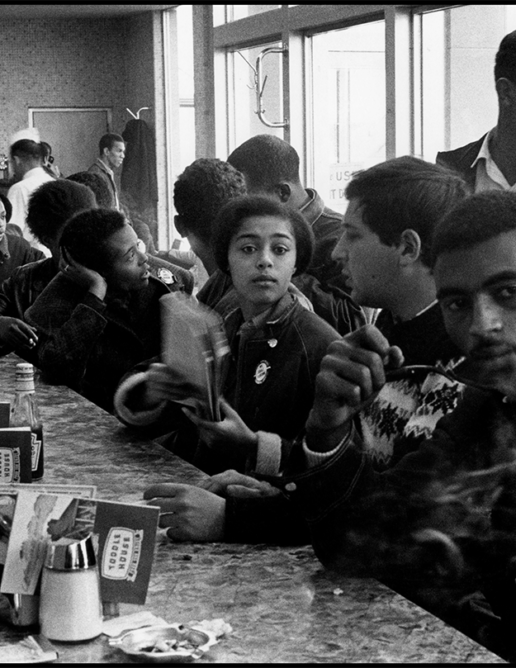
Teaching the history of the Student Nonviolent Coordinating Committee helps students see the Civil Rights Movement as being fueled by thousands of young people like themselves instead of a few charismatic leaders. “Without the history of SNCC at their disposal, students think of the Civil Rights Movement as one that was dominated by charismatic leaders and not one that involved thousands of young people like themselves. Learning the history of how young students risked their lives to build a multigenerational movement against racism and for political and economic power allows students to draw new conclusions about the lessons of the Civil Rights Movement and how to apply them to today.”
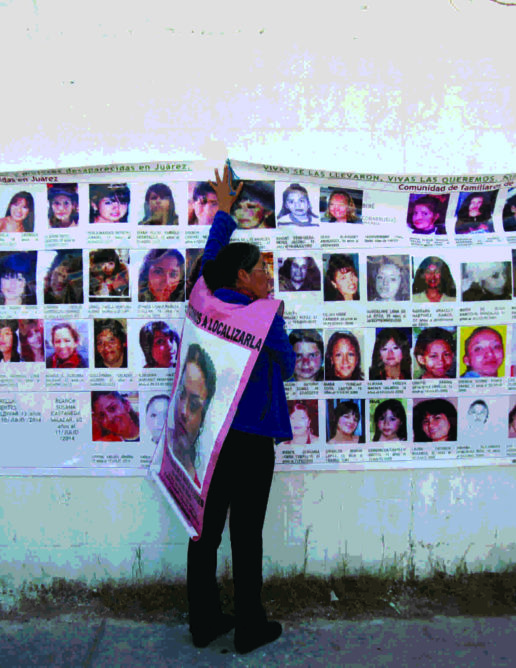
Since 1993, the Mexican border city of Ciudad Juárez has been shaken by disappearances of teenage girls and young women. Officials say they have few leads. The murders in Juárez have received some international attention, primarily due to government inaction. Yet little has been done by the government to prevent violence against women and girls, as officials neglect to bring their perpetrators to justice.
Residents do not let these deaths go unnoticed as hundreds of pink crosses — a symbol of these missing women — dot the border. An increase in these deaths coincided with the implementation of the North American Free Trade Agreement (NAFTA). A treaty between Mexico, the United States, and Canada, NAFTA sought to increase investment opportunities by eliminating tariffs and, like many other economic agreements, benefited the economic elites of the three countries while resulting in widespread unemployment, increased class stratification, and mass emigration. Most of the “disappeared” women work in assembly plants or maquiladoras, owned by the United States and transnational corporations that dashed to northern Mexico post-NAFTA to reap the benefits of lower wages and lax environmental regulation.